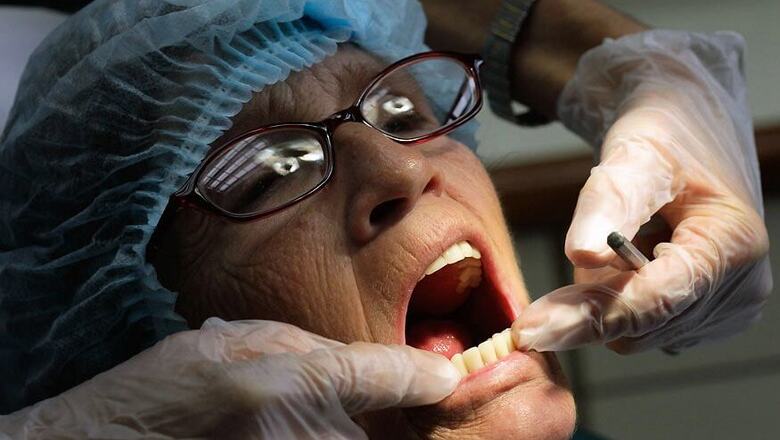
views
Post-menopausal women who undergo oestrogen therapy may get healthier teeth and gums, a study has found.
The study, published online in the journal Menopause, said that the rate of occurrence of severe periodontitis -- inflammation around the tooth -- was 44 per cent lower in the post-menopausal women.
The hormonal therapy is mostly used to treat osteoporosis -- a condition in which bones become weak and brittle.
During menopause, oestrogen levels fall, making women more vulnerable to numerous health issues, including loss of bone mineral density which leads to the condition.
Around the same time, changes in oral health also are common as teeth and gums become more susceptible to disease, which leads to the inflammation, pain, bleeding, and eventually loose or missing teeth, the researchers said.
"Osteoporosis can occur throughout the body, including the jaw and lead to an increased risk of periodontal disease," said JoAnn Pinkerton, executive director at The North American Menopause Society (NAMS) -- a US-based nonprofit organisation.
"This study demonstrates that oestrogen therapy, which has proven to be effective in preventing bone loss, may also prevent the worsening of tooth and gum disease," Pinkerton added.
Previous studies have proved that oestrogen therapy is beneficial for women to manage an array of menopause-related issues, including reducing hot flashes, improving heart health and bone density, and maintaining levels of sexual satisfaction.
For the study, the team evaluated 492 postmenopausal Brazilian women aged 50 to 87 years, 113 in osteoporosis treatment and 379 not treated, to determine whether the treatment could help increase the bone mineral density in their jaws and, subsequently, improve overall oral health.
The therapy consisted of systemic oestrogen alone or oestrogen plus progestin, as well as calcium and vitamin D supplements, for a minimum of six months.
"All women, but especially those with low Oestrogen or on bisphosphonate treatment for osteoporosis, should make good dental care a part of their healthy lifestyles," Pinkerton suggested.




















Comments
0 comment